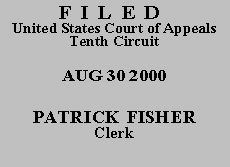

| UNITED STATES OF AMERICA,
Plaintiff-Appellee, v. MARTIN QUIJANO-MONTIEL, also known as Martin Bais-Gonzalez, also know as Martin Bais, also known as Martin Valles, Defendant-Appellant. |
|
Appellant pleaded guilty to one count of illegal reentry after deportation, in violation of 8 U.S.C. § 1326. At sentencing, appellant argued that he had only fifteen criminal history points, rather than seventeen as identified in the initial Presentence Investigation Report (PSR) prepared by the United States Probation Office. He requested that the district court grant him a discretionary downward departure pursuant to U.S.S.G. § 4A1.3 because his criminal history would be significantly over-represented by placing him in criminal history category VI.
The district court rejected this argument, denied appellant a continuance to present evidence concerning his criminal history points, established appellant's criminal history category at VI and his offense level at 21, and sentenced appellant to seventy-seven months' incarceration. Appellant now appeals his sentence, challenging the district court's refusal to grant him a continuance of the sentencing hearing to allow him to present proof that he had only fifteen criminal history points.
We review the district court's legal application of the sentencing guidelines de novo, and its findings of fact for clear error, giving due deference to its application of the guidelines to the facts. See United States v. Janusz, 135 F.3d 1319, 1324 (10th Cir. 1998). We review its denial of a request for continuance for abuse of discretion. See United States v. Garcia, 78 F.3d 1457, 1467 (10th Cir. 1996).
In its initial report, the Probation Office found that appellant had five prior drug convictions, each carrying a sentence exceeding one year and one month. It assigned him three criminal history points for each of these convictions. See U.S.S.G. § 4A1.1(a). It added an additional two points, for a total of seventeen points, because the instant offense had been committed less than two years after appellant's release from imprisonment on a prior sentence. See id. § 4A1.1(e). In an addendum to its report, however, the Probation Office accepted appellant's argument that his most recent conviction, from Denver County, Colorado, should only count for one point rather than three because the sentencing court had ordered him released to the custody of the Immigration and Naturalization Service immediately after imposition of sentence.(1) It thus assigned a total of fifteen criminal history points to appellant.
Despite the position of the Probation Office, the Government continued to argue at sentencing that appellant had seventeen criminal history points. Appellant disputed this and requested a continuance to present a transcript of his sentencing for the Denver County, Colorado offense to prove that it was only a one-point offense. The district court assessed appellant's criminal history score at seventeen and denied the continuance. It then rejected appellant's request for a downward departure, which he sought on the basis that category VI over-represented the seriousness of his criminal history.
Appellant admits that even with the criminal history point score of fifteen that he sought, he would still have a score placing him in category VI, reserved for criminal histories of thirteen points or more. See U.S.S.G. Ch. 5, pt. A (sentencing table). He argues, however, that had he been given a continuance to prove that he actually had a criminal history score of fifteen points, the district court might have been more willing to depart downward in his favor. This reasoning is belied by the district court's clear comments at sentencing:
I don't think his past criminal history overrepresents his criminal history. Even if I continued this and gave you a chance to get something that might change the Court's ruling on the suspension issue, I think that's irrelevant to what his criminal history category actually is, because I'm not inclined to find that even if it's at 15, that it overrepresents the seriousness of his past criminal history or his propensity to commit further crimes which is the dual prong that the Court should look at.
R. Vol. II at 17.
The court later fortified these comments:
I find absolutely no merit to the argument with or without the issue about whether or not the suspension should occur that would support that the defendant's past criminal history overrepresents the seriousness of his past criminal history because the Court believes it does not.
Id. at 22.
Given the district court's conclusion that the additional evidence appellant sought to present could have no effect on its discretionary decision not to depart downward, it did not abuse its discretion in denying the continuance. We lack jurisdiction, moreover, to review the merits of the district court's decision not to depart downward. See, e.g., United States v. Fortier, 180 F.3d 1217, 1231 (10th Cir. 1999).
The judgment of the United States District Court for the District of Colorado is therefore AFFIRMED.
Entered for the Court
Circuit Judge
*. This order and judgment is not binding precedent, except under the doctrines of law of the case, res judicata, and collateral estoppel. The court generally disfavors the citation of orders and judgments; nevertheless, an order and judgment may be cited under the terms and conditions of 10th Cir. R. 36.3.
1. Appellant cites U.S.S.G. § 4A1.2(b)(2), which provides that if part of a sentence was suspended, the "sentence of imprisonment" refers only to the portion not suspended. Thus, a sentence never served because of deportation would arguably not constitute a sentence of more than one year and one month and would therefore qualify for only one criminal history point. See id. § 4A1.1(c). In light of our disposition, we need not determine whether appellant's reading of the Guidelines on this point is correct.